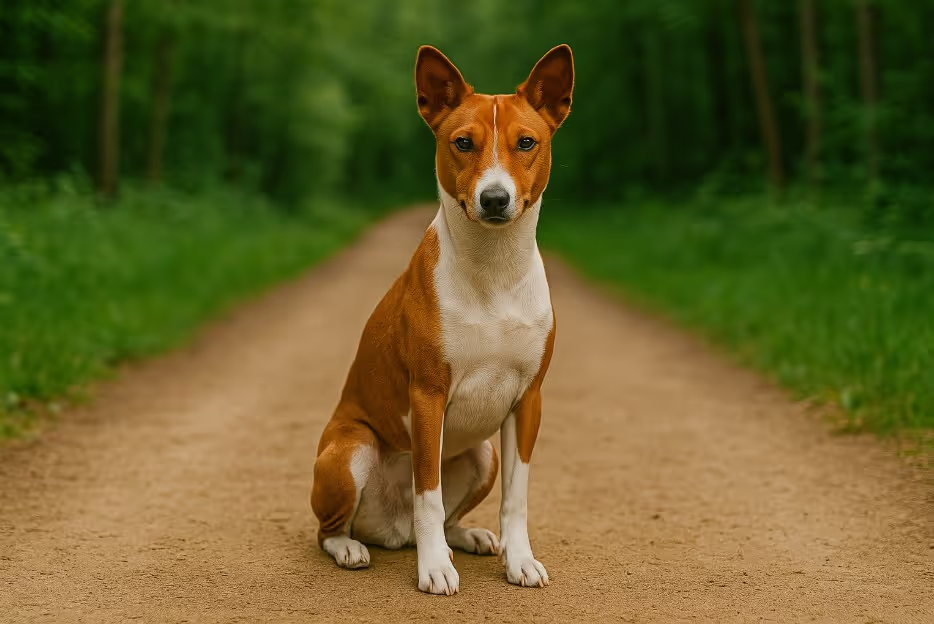The Basenji is a unique and ancient African breed known for its elegance, intelligence, and cat-like cleanliness. Nicknamed the “barkless dog” due to its unusual yodel-like vocalization, the Basenji is agile, alert, and highly independent. They are best suited for active, experienced owners who appreciate their spirited personality and need for mental and physical stimulation. This sleek, graceful dog makes a loyal companion but thrives in homes that understand their independent streak.

Originating in Central Africa, particularly the Congo region, the Basenji has been a hunting companion for thousands of years. They were bred to flush game into nets, control rodent populations, and track small prey using their keen eyesight and scenting ability. Known for their independence and problem-solving skills, they were valued for their ability to work closely with hunters while remaining self-sufficient. Western explorers brought the breed to Europe in the late 19th century, and the American Kennel Club recognized the Basenji in 1943. Despite their global reach today, the Basenji retains its primitive instincts and unique character.
A small, fine-boned, athletic dog with a distinctive curled tail and wrinkled forehead.
Basenjis are famously low-maintenance and keep themselves exceptionally clean.
A high-energy breed with a love for play and exploration.
Basenjis are intelligent but independent, which can challenge training.
Proper nutrition supports their high metabolism and lean muscle.
Generally healthy but prone to certain hereditary conditions.
Finding a Basenji in Canada may require patience and research.
Are Basenjis really barkless?
Yes, they don’t bark in the traditional sense but make a yodel-like sound called a “baroo.”
Are Basenjis good apartment dogs?
Yes, if given daily exercise and mental enrichment—they are quiet and clean indoors.
Do Basenjis get along with other pets?
They can, especially with early socialization, but may chase smaller animals.
Are Basenjis good for first-time dog owners?
They are best for experienced owners due to their independence and high energy.
How much grooming do Basenjis need?
Very little—weekly brushing and occasional baths are sufficient.
Do Basenjis shed?
They shed minimally, making them a good choice for those seeking a low-shedding dog.
Are Basenjis affectionate?
Yes, with their family they are loving, though they may be aloof with strangers.